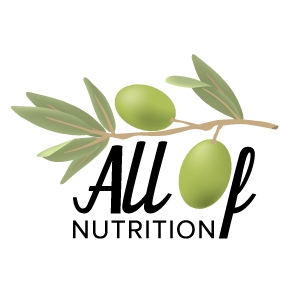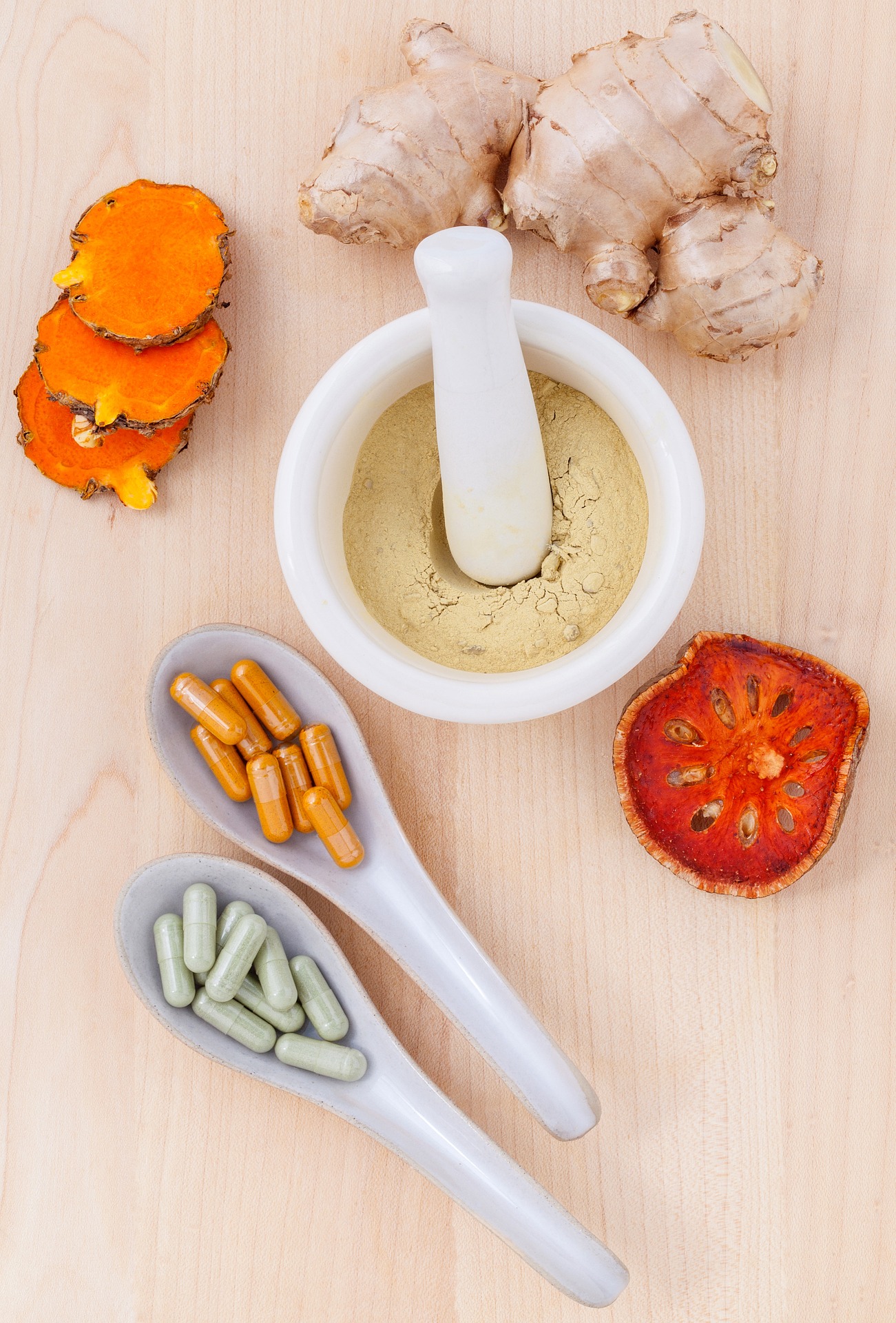
Understanding Micronutrients
My job as an eating coach or eating cheerleader is to help you to have a more positive relationship with food. Many times, this means making nutrient or supplementation recommendations to improve the quality of your intake. More often though, I am helping people untangle the web of nutrition information they are bombarded with every day. Nutrition information is can be helpful and I think it’s useful to become educated about how to take care of your body. That being said, I often see people getting so tangled up in the weeds of all the information that they become almost paralyzed.
When you are following the ONE-TWO PUNCH and pairing a carbohydrate and protein with a ½ plate of vegetables you are probably meeting most of your nutrition needs. We designed OTP to balance your diet and meet your nutrition needs.
If you are eating a ½ plate of vegetables with most meals and regularly eating fruit, meat, beans, dairy, and whole grains you should meet your nutrients needs for all of your micronutrients. I like to challenge people to start with aiming for 5 servings of vegetables daily, working their way up to 10 servings to really bulk up their intakes of vegetables.
Regarding nutrient requirements, there are many different numbers being thrown around; it can be confusing. We mostly base our recommendations on the DRIs or Dietary Reference Intake.
DRI: Dietary Reference Intake includes RDA, AI, and UL. Adequate Intake (AI) is similar to the RDA 9Recommended Dietary Allowance), but is for nutrients that do not have complete consensus on recommended amounts from the nutrition community. Tolerable Upper Intake Level (UL) is the maximum allowed daily intake that won’t increase over-consumption health risks. RDA is the recommended amounts of nutrients to strive for every day; statistically it covers 97-98% of all healthy people in an age and gender group.
Micronutrients:
Vitamin C: an antioxidant that helps form collagen in your body. Collagen is the main structural protein found in skin and other connective tissues. If you are not getting enough, you might experience poor wound healing, easy bruising, bleeding gums, lack of energy, and be more susceptible to infections. Best sources are broccoli, cantaloupe, tropical fruits, peppers, and strawberries. Best taken with calcium and magnesium.
B-vitamins
Thiamine (B1): important for the metabolism of sugars and amino acids (protein building blocks). When you are low, you might experience a decrease in appetite and weight loss, nausea, vomiting, and fatigue. Best sources are brown rice, pork, beef, beans, enriched grain products, and oranges. Best taken with vitamin B complex, C, and E.
Riboflavin (B2): important for fat, carbohydrate and protein metabolism. Deficiencies can result in cracks and sores on tongue and corners of the mouth, red eyes, skin lesions, dizziness, hair loss, inability to sleep, and poor digestion. Best sources are poultry, fish, fortified grains, leafy greens, yogurt, milk, and cheese. Best taken with other B vitamins and vitamin C.
Niacin (B3): important for carbohydrate metabolism and the production of sex and stress hormones. Deficiencies can result in canker sores, diarrhea, dizziness, fatigue, headaches, indigestion, insomnia, loss of appetite, and Pellagra (a disease that includes diarrhea, skin inflammation and dementia). Best sources are chicken, tuna, fortified bread, broccoli, carrots, cheese, dates, eggs, fish, milk, peanuts, pork, tomatoes, and potatoes.
Pantothenic Acid (B5): important for fat and carbohydrate metabolism and red blood cell production. Deficiencies are very rare. Best sources are whole grains, mushrooms, salmon, fresh vegetables, legumes, and whole-wheat flour. Best taken with vitamins A, C, and E.
Pyridoxine (B6): an enzyme in more than 100 different reactions in the body. It is important for protein metabolism, neurotransmitters, white blood cells, and hemoglobin production. Deficiencies can cause anemia, seizures, headaches, nausea, and dry and flaky skin. Best sources are bananas, avocados, chicken, beef, eggs, brown rice, whole wheat, nuts and seeds. Best taken with potassium, other B vitamins, and vitamin C.
Cyanocobalamin (B12): important for the breakdown of fatty acids. Deficiencies can cause chronic fatigue, constipation, depression, digestive issues, dizziness, liver enlargement, headaches, inflammation of the tongue, nerve disorders, and anemia. Best sources are seafood, lean beef, blue cheese, and gorgonzola cheese.
Fat Soluble Vitamins
Vitamin D: important for proper functioning of calcium and immune function. Deficiencies can cause softening of the bones, osteoporosis (brittle bones), and low potassium. Best sources are sun exposure, oily fish, eggs, and fortified milk. Best taken with calcium, choline, phosphorus, and vitamins A and C.
Vitamin E: a powerful antioxidant important for your immune system. Deficiencies are rare. Best sources are vegetable and nut oils, corn, spinach, and whole grains. Best taken with essential fatty acids, manganese, selenium and vitamins A, B1, and C.
Vitamin K: promotes blood clotting and bone strength. It is rare to have deficiencies, but some newborn babies do. Best sources are green leafy vegetables. Vitamin K levels need to be monitored closely if you are taking blood thinners.
Vitamin A: important for healthy eyes, skin, hair, teeth, and gums. Deficiencies can cause poor night vision, macular degeneration (deterioration of a portion of the eye), dry skin, poor hearing, and alter taste or smell. Best sources are carrots, pumpkin, yam, tuna, cantaloupe, butternut squash, fish, and eggs. Best taken with choline, essential fatty acids, vitamins C, D, E, and zinc.
Minerals
Calcium: important for bone and teeth formation, nerve transmission and muscle contraction. Poor intake can lead to muscle spasms, rickets (distorted bone formation), soft bones, and osteoporosis. Best food sources are dairy products and fortified foods. Best taken with boron, essential fatty acids, folic acid, iron, lysine, magnesium, phosphorus, Vitamins D, E, K, A, and zinc.
Chromium: works with insulin to control blood sugar and helps with carbohydrate and fat metabolism. Chromium deficiencies are rare. Best sources are broccoli, ham, grape juice, cheese, whole grain, and dried beans.
Folic Acid: helps with production, division, and maintenance of new cells. Low intake can lead to pregnancy-related anemia, anemia, weakness, and sleep disturbances. Best sources are fortified cereal, beans, asparagus, spinach, broccoli, Brussel sprouts, brown rice, beef, leafy greens, lentils, milk, pork, and whole grains. Best taken with a multivitamin.
Iodine: important for thyroid hormone production and metabolism. Low intake can cause a swelling of the neck from an enlarged thyroid gland (goiter) Best sources are iodized salt, shellfish, and milk.
Iron: helps with creation and maintenance of hemoglobin to hold oxygen in the blood and works with vitamin B12 and folic acid to create red blood cells. Low intake can cause anemia, dry hair, difficulty swallowing, fatigue, hair loss, and delay mental responses. Best sources are fortified cereals, beef, baked potatoes, pumpkin seeds, eggs, fish, green leafy vegetables, whole grains, nuts, avocados, and lentils.
Magnesium: helps maintain healthy blood pressure and maintain cells in nerves and muscles. Low intake can lead to sleep disturbances, rapid heartbeat, confusion, muscle spasms, and stomach issues. Best sources are brown rice, avocados, spinach, oatmeal, beans, broccoli, yogurt, bananas, apples, apricots, cantaloupe, green leafy vegetables, nuts, and salmon. Best taken with calcium, phosphorus, potassium, Vitamins B6, C, and D.
Phosphorus: important for bone mineralization, collagen formation, energy production, electrolyte balance, and DNA structure. Low intake can lead to fatigue, low appetite, bone pain, and weakness. Best sources are fish, chicken, skim milk, lean ground beef, dairy products, eggs, dried fruits, and seeds. Best taken with calcium, iron, sodium and vitamin B6.
Potassium: important for muscle strength and contraction. It also maintains blood pressure. Low intake of potassium can lead to dry skin, diarrhea, impaired thinking, muscle spasms, thirst, increased blood sugar, insomnia, and decreased blood pressure. Best sources are avocados, tomato sauce, dried fruit, cantaloupe, papaya, cooked pumpkin, squash, broccoli, tomatoes, bananas, and baked potatoes.
Sodium: important for fluid balance, nerve function, and muscle contraction. Low intake can lead to diarrhea, impaired thinking, muscle spasms, water retention, thirst, increased blood sugar, and decreased blood pressure.
If you are not frequently eating many fruits and vegetables, I generally recommend a daily multi-vitamin mineral supplement that includes approximately 100% of the RDA for most nutrients. You can think of it as an insurance policy towards some of the nutrients you need. That being said, eating a wide variety of foods with plenty of fruits and vegetables is the best insurance policy for health. Super doses of micronutrients are not usually needed, unless you have a severe deficiency. Based on your specific nutrition needs (i.e., pregnancy, athlete, etc.), additional supplements might be recommended.
There’s no need to eat foods specifically with other foods. If you are eating a varied diet, you should be getting a wide variety of nutrients on any given day to help you metabolize everything efficiently. If you are deficient in a nutrient, it might help to pair with a complementary nutrient. For example, if you have anemia because you are deficient in iron, taking your iron with vitamin C will increase the absorption of the iron. You can stir-fry some beef with broccoli and peppers to complement the iron and vitamin C. Unless you have a specific health condition or are following a limited diet, you will most likely be getting the nutrients you need by eating a wide variety of foods.
Interested in learning more about your specific needs? Make an appointment with All of Nutrition or listen to the following podcast featuring Marysa Cardwell with HungrySquared:
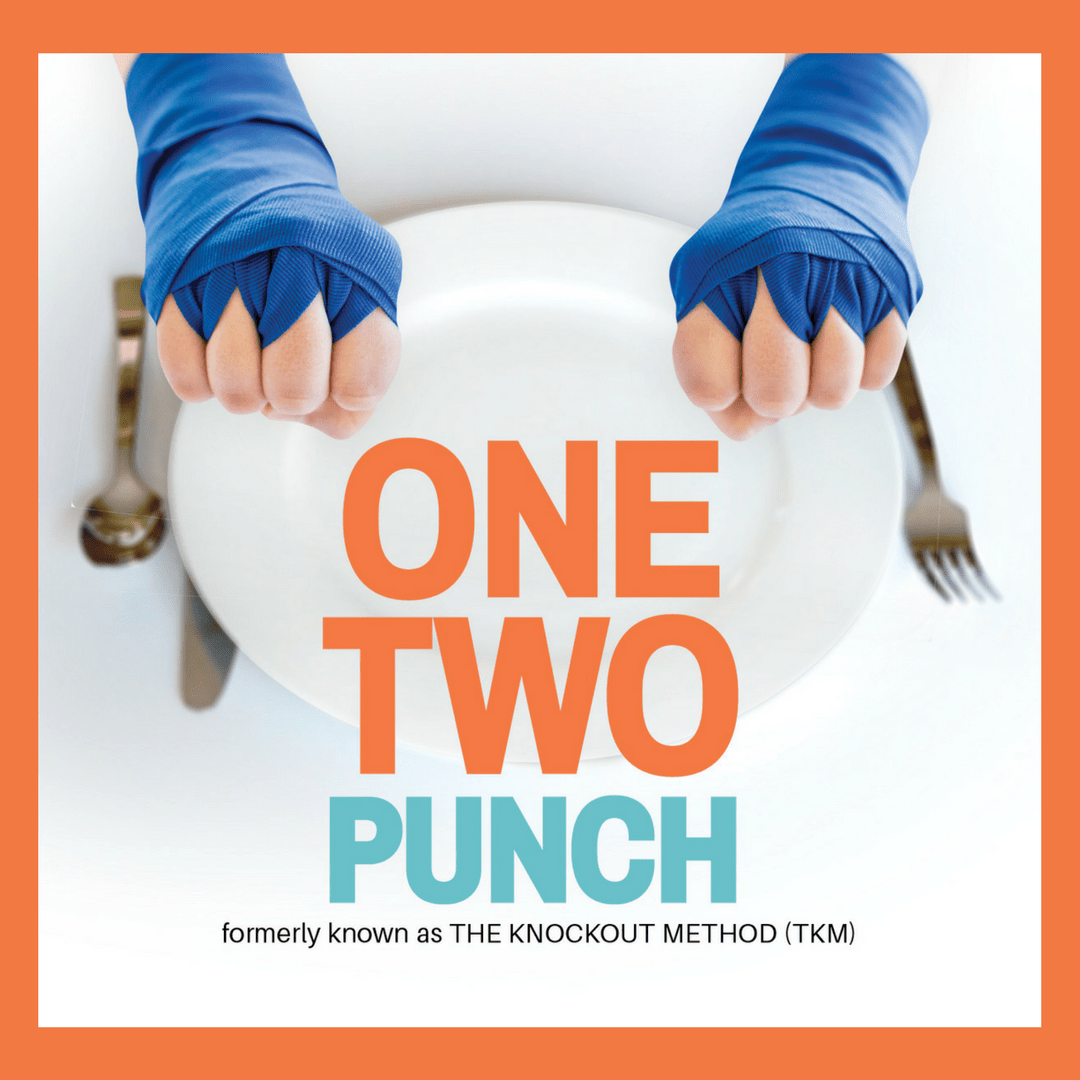
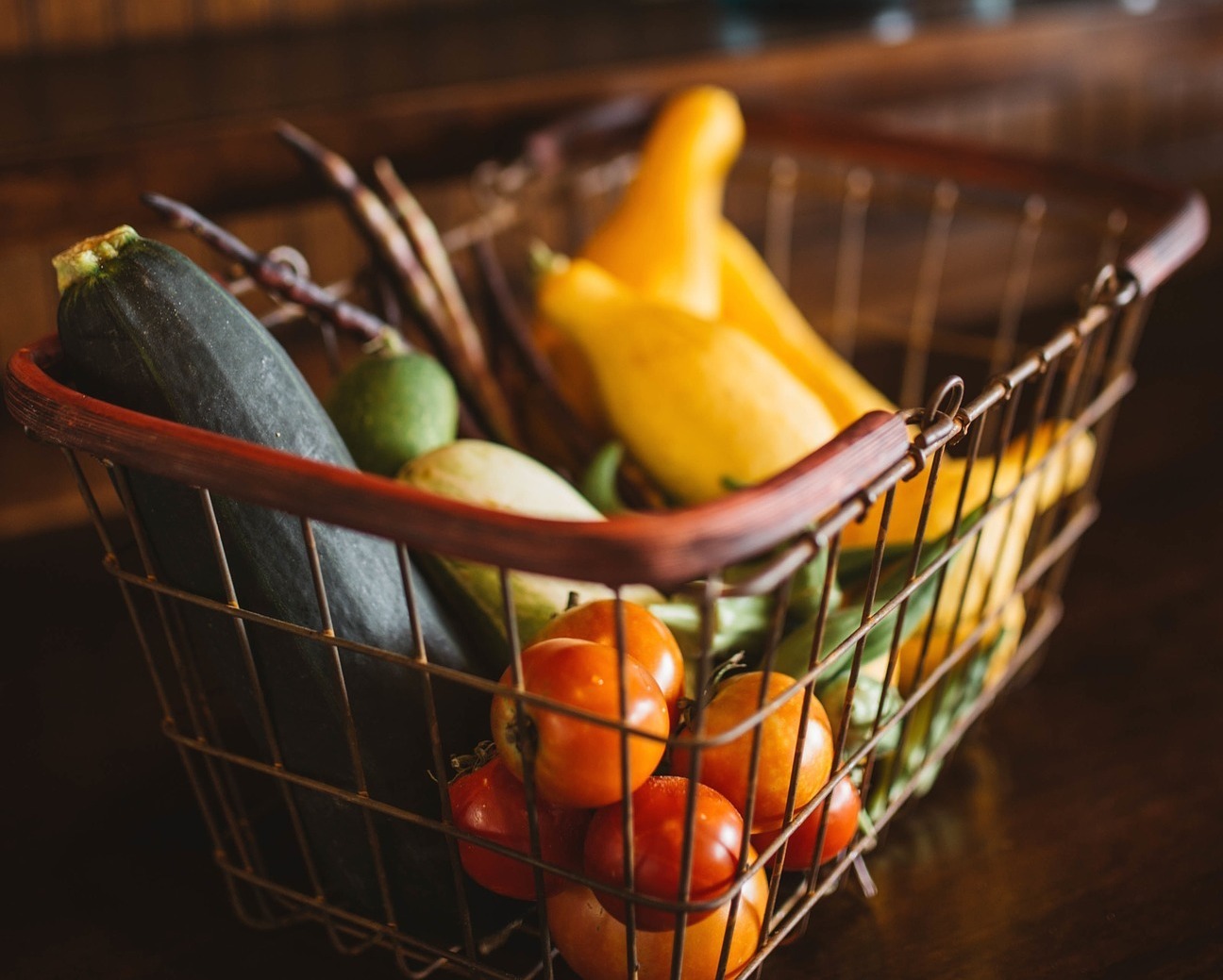
You May Also Like
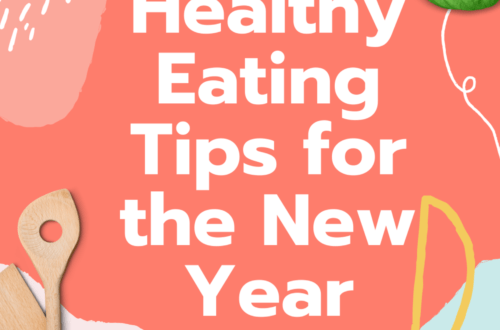
Healthy Eating for the New Year
December 19, 2019
Get Smart About Sugar
April 8, 2018
